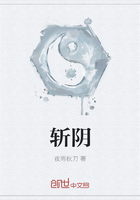D’Artagnan traversed the six or eight leagues between Chantilly and Crèvec?ur.
This time not a host but a hostess received him. D’Artagnan was a physiognomist. His eye took in at a glance the plump, cheerful countenance of the mistress of the place, and he at once perceived there was no occasion for dissembling with her, or of fearing anything from such a jolly woman.
“My good dame,” asked D’Artagnan, “could you tell me what has become of a friend of mine whom we were obliged to leave here about ten days ago?”
“A handsome young man, of twenty-three or twenty-four, mild, amiable, and well made?”
“That’s it.”
“Wounded, moreover, in the shoulder?”
“Just so.”
“Well, sir, he is still here.”
“Ah, zounds! my dear dame,” said D’Artagnan, springing from his horse and throwing the bridle to Planchet, “you restore me to life. Where is my dear Aramis? Let me embrace him! for, I confess it, I am quite anxious to see him again.”
“Well, you have only to take the right-hand staircase in the yard, and knock at No. 5 on the second floor.”
D’Artagnan hastened in the direction pointed out, and turned the handle of the door No. 5.
The door opened, and D’Artagnan went into the chamber.
“Good-afternoon to you, dear D’Artagnan,” said Aramis. “Believe me, I am very glad to see you.”
“So am I delighted to see you,” said D’Artagnan, and he added a reference to Aramis’s wound.
“My wound, my dear D’Artagnan, has been a warning to me from Heaven.”
“Your wound? Bah! it is nearly healed, and I am sure it is not that which at the present moment gives you the most pain.”
“What wound?” asked Aramis, colouring.
“You have one in your heart, Aramis, deeper and more painful—a wound made by a woman.”
The eye of Aramis kindled in spite of himself.
“Ah,” said he, dissembling his emotion under a feigned carelessness, “do not talk of such things. What! I think of such things? I have love-pangs? Vanitas vanitatum! According to your idea, then, my brain is turned! And for whom? For some grisette, some chamber-maid, whom I have courted in some garrison! Fie!”
“I crave your pardon, my dear Aramis, but I thought you aimed higher.”
“Higher? And who am I, to nourish such ambition? A poor musketeer, a beggar and unknown, who hates slavery, and finds himself out of place in the world.”
“Well, then, let us say no more about it,” said D’Artagnan; “and let us burn this letter, which, no doubt, announces to you some fresh infidelity of your grisette or your chambermaid.”
“What letter?” cried Aramis eagerly.
“A letter which was sent to your rooms in your absence, and which was given to me for you.”
“But whom is that letter from?”
“Oh, from some tearful waiting-maid, some despairing grisette; from Madame de Chevreuse’s chambermaid, perhaps, who must have been obliged to return to Tours with her mistress, and who, in order to make herself attractive, stole some perfumed paper, and sealed her letter with a duchess’s coronet.”
“What are you saying?”
“There! I really think I must have lost it,” said the young man mischievously, while pretending to search for it. “But fortunately the world is a sepulchre; men, and consequently women also, are only shadows, and love is a sentiment upon which you cry, ‘Fie, fie!”’
“DArtagnan! D’Artagnan!” cried Aramis, “you are killing me!”
“At last, here it is!” said D’Artagnan. He drew the letter from his pocket.
Aramis sprang towards him, seized the letter, read it, or rather devoured it, his countenance absolutely beaming with delight.
“Your waiting-maid seems to have an agreeable style,” said the carrier carelessly.
“Thanks, D’Artagnan, thanks!” cried Aramis, almost in a stare of delirium. “She was forced to return to Tours; she is not faithless; she still loves me! Come, dear friend, come, let me embrace you; happiness stifles me!” And the two friends began to dance round.
At that moment Bazin entered.
“Be off, you scoundrel!” cried Aramis. “Order a larded hare, a fat capon, a leg of mutton with garlic, and four bottles of old Burgundy! ’Sdeath! let us drink while the wine is fresh. Let us drink heartily, and tell me something about what is going on in the world yonder.”















